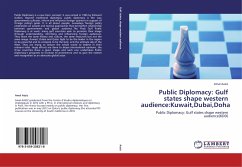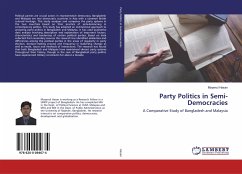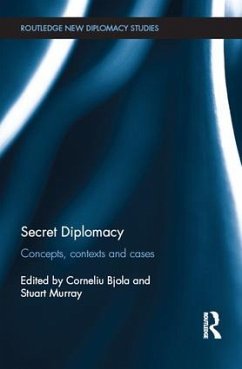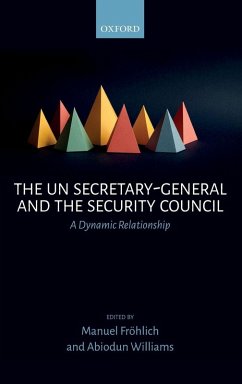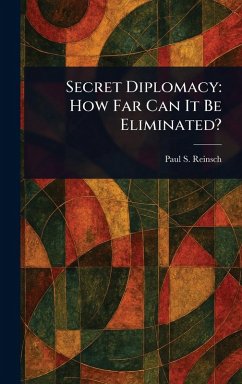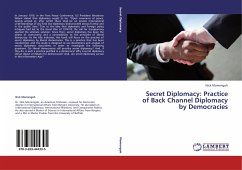
Secret Diplomacy: Practice of Back Channel Diplomacy by Democracies
Versandkostenfrei!
Versandfertig in 6-10 Tagen
40,99 €
inkl. MwSt.

PAYBACK Punkte
20 °P sammeln!
In January 1919, in the Paris Peace Conference, US President Woodrow Wilson stated that diplomacy ought to be: Open covenants of peace, openly arrived at, after which there shall be no private international understandings of any kind but diplomacy shall proceed always frankly and in the public view. Due to the idea that diplomatic and foreign policy intrigues had led to the Great War of 1914-18, the call for transparency seemed the ultimate solution. Since then, secret diplomacy has been the object of controversy and a contradiction to the principles of liberal democracy. As the title indicate...
In January 1919, in the Paris Peace Conference, US President Woodrow Wilson stated that diplomacy ought to be: Open covenants of peace, openly arrived at, after which there shall be no private international understandings of any kind but diplomacy shall proceed always frankly and in the public view. Due to the idea that diplomatic and foreign policy intrigues had led to the Great War of 1914-18, the call for transparency seemed the ultimate solution. Since then, secret diplomacy has been the object of controversy and a contradiction to the principles of liberal democracy. As the title indicates, this book will focus on the practice of secret diplomacy by liberal democracies. This is a practice that has been condemned, and this study is designed to use illustrations and analysis of secret diplomatic documents in order to investigate the following questions. Do liberal democracies still practice secret diplomacy? And, if they do, is such a practice justified in a democracy? Why is secret diplomacy still an object of debate for democracies? And, can secret diplomacy survive in this Information Age?



